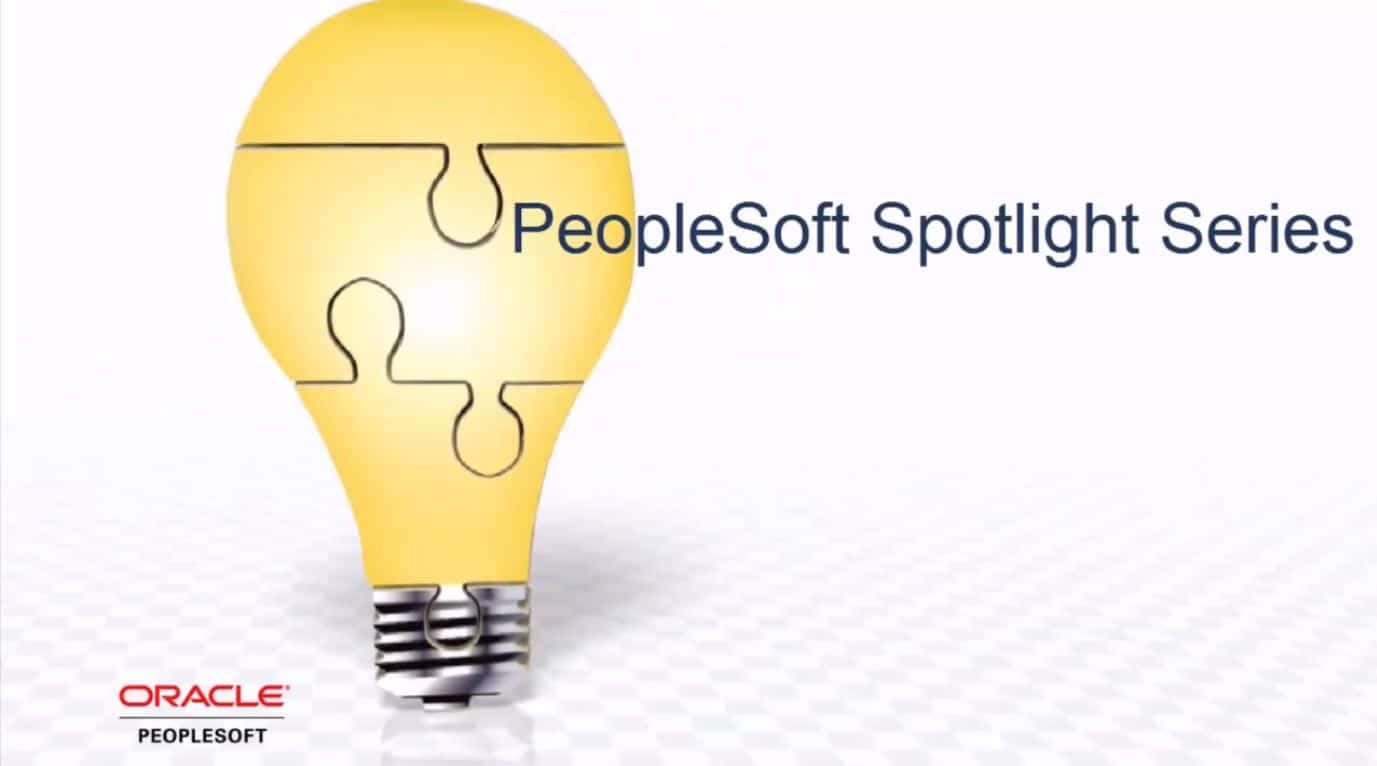PeopleSoft Spotlight Series: Cloud Manager Image 05
-
Posted by Harry E Fowler
- Last updated 4/18/23
- Share

PeopleSoft Cloud Manager provides platform services on Oracle infrastructure as a service, giving you the agility you need to accelerate your business. Cloud Manager with the Oracle Cloud enables even non-technical users to self provision environments in minutes, saving you money. Cloud Manager reduces the complexities of deployment for your users and allows them to perform guided lifecycle updates using the latest features and patches. Cloud Manager Image 05 includes many new features to make provisioning and maintaining PeopleSoft applications even easier.
In a recent Spotlight Series video, Oracle PeopleSoft provides an overview of Cloud Manager as well as demonstrations of how to configure and create PeopleSoft environments in the cloud, how self-service users can quickly provision an environment, how to migrate your on-premise database on the cloud and how to manage PeopleSoft lifecycle in the cloud for patching and upgrading PeopleTools and applying updates. In addition, a list of where you can find additional information on Cloud Manager is provided.
In order to use PeopleSoft on the Cloud, you must purchase a subscription to Oracle Cloud. Once a customer acquires a subscription to Oracle Cloud, no additional PeopleSoft application license or usage license is required to use the Cloud Manager Application.
To download and install Cloud Manager, sign-on to Oracle marketplace and search for the Cloud Manager. You will install Cloud Manager from Oracle Marketplace. The bootstrap install for PeopleSoft Cloud Manager will go through a series of questions, similar to installing a DPK locally. This process will load the Cloud Manager application on a VM in the Oracle Cloud for your cloud account. You will be required to enter your Cloud credentials such as user ID and password. A repository for file storage is created in your cloud domain. The repository stores the PeopleSoft images for subscribed applications. These are the DPK, PRPs and customer DPK created using the clone process.
You will subscribe to release channels such as HCM or CRM, as well as PeopleTools. When you subscribe to a release channel, all of the DPKs and PRPs associated with that channel are automatically downloaded to the repository for your Cloud domain from My Oracle Support. In Cloud Manager, the PeopleSoft administrator will define the topology. The topology defines the infrastructure elements, VMs and PeopleSoft components, database and middle tier that can be deployed. The PeopleSoft administrator will then define templates. A template is a predefined deployment configuration that is used to orchestrate PeopleSoft deployments. The template defines the topology and application DPK, as well as access for self-service users.
When a user selects to provision an environment template, Cloud Manager orchestrates the entire deployment process and the environment is ready within an hour or an hour and a half, depending on the topology. Self-service users can only access those templates assigned to them. You can lift your own premises, Oracle database, application home and cost home to the Cloud.
The lift process is done outside of Cloud Manager using the Lift Utility provided in Cloud Manager. This utility will package your on-premise environment into a DBA, which will be referred to as the Custom DPK and then upload it to Object Storage in your Oracle Public Cloud Account. All lifted Custom DPKs in Object Storage are available on the Lift and Shift page in Cloud Manager.
The Shift Operation will deploy your custom environment using the Lift and Shift template. You can clone any running environment to template, which we refer to as templatizing the environment. When you templatize the environment, the running environment is cloned to a DPK and is added to the repository. This DPK will then be used to create a template. Self-service users will then be able to select that template to provision an environment.
Cloud Manager also provides features for lifecycle management. This includes automated setup for Selective Adoption, automated upgrade for PeopleSoft environments with PeopleTools 8.55 to PeopleTools 8.56, automated apply of PeopleTools Patches, the ability to manage application updates delivered through PeopleSoft interaction hub update images and PRPs.

